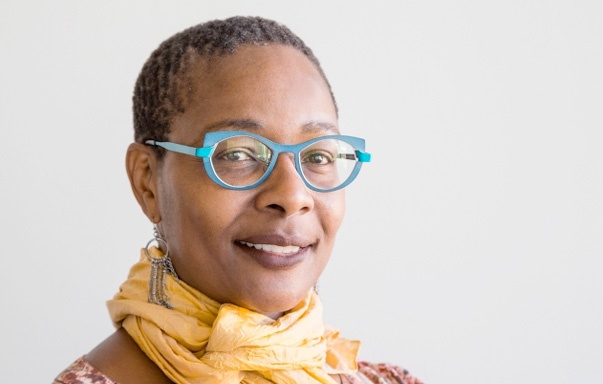3 Questions: Professor Kenda Mutongi on Africa, women, power — and human decency
3 Questions: Professor Kenda Mutongi on Africa, women, power — and human decency
January 14, 2020 | School of Humanities, Arts, and Social Sciences
Mutongi discusses the connection between Kenyan widows and the #MeToo movement, myths of African entrepreneurship, and the wider implications of her research.

"Lately I have been trying to think of African history from the perspective of goodness and basic human decency. Of course, conflicts exist, and do a great deal of damage in our lives, and we must confront them — but we must also allow ourselves to appreciate basic goodness and kindness when we see it."
— Kenda Mutongi, MIT Professor of History
MIT Professor Kenda Mutongi teaches courses in African history, world history, and gender history, and serves on the MIT Africa Working Group. She is the author of two award-winning books: “Matatu: A History of Popular Transportation in Nairobi” (University of Chicago Press, 2017) and “Worries of the Heart: Widows, Family, and Community in Kenya” (University of Chicago Press, 2007). The latter book explores how widows, a marginalized group in Kenya, weathered the country’s transition to a post-colonial society and found novel ways to address their collective social, economic, and political problems.
Mutongi, born and raised in rural Kenya, recently spoke with SHASS Communications on the interplay of African history and current gender issues within the United States; the importance of multidisciplinary thinking in solving the world's concerns; and the wider implications of her research.